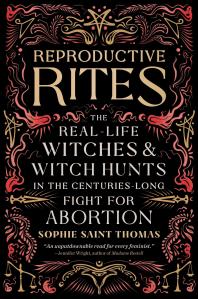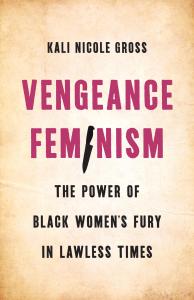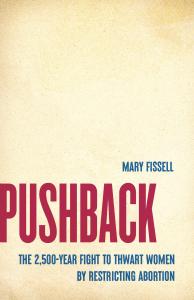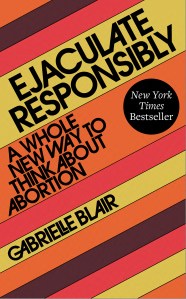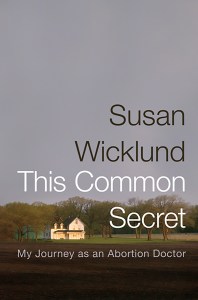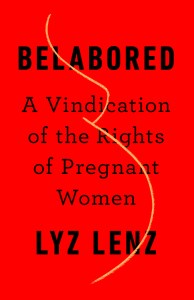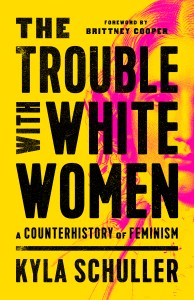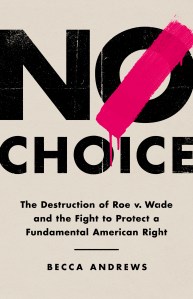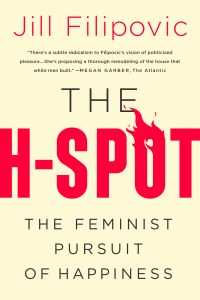Nonfiction Books about Women’s Rights
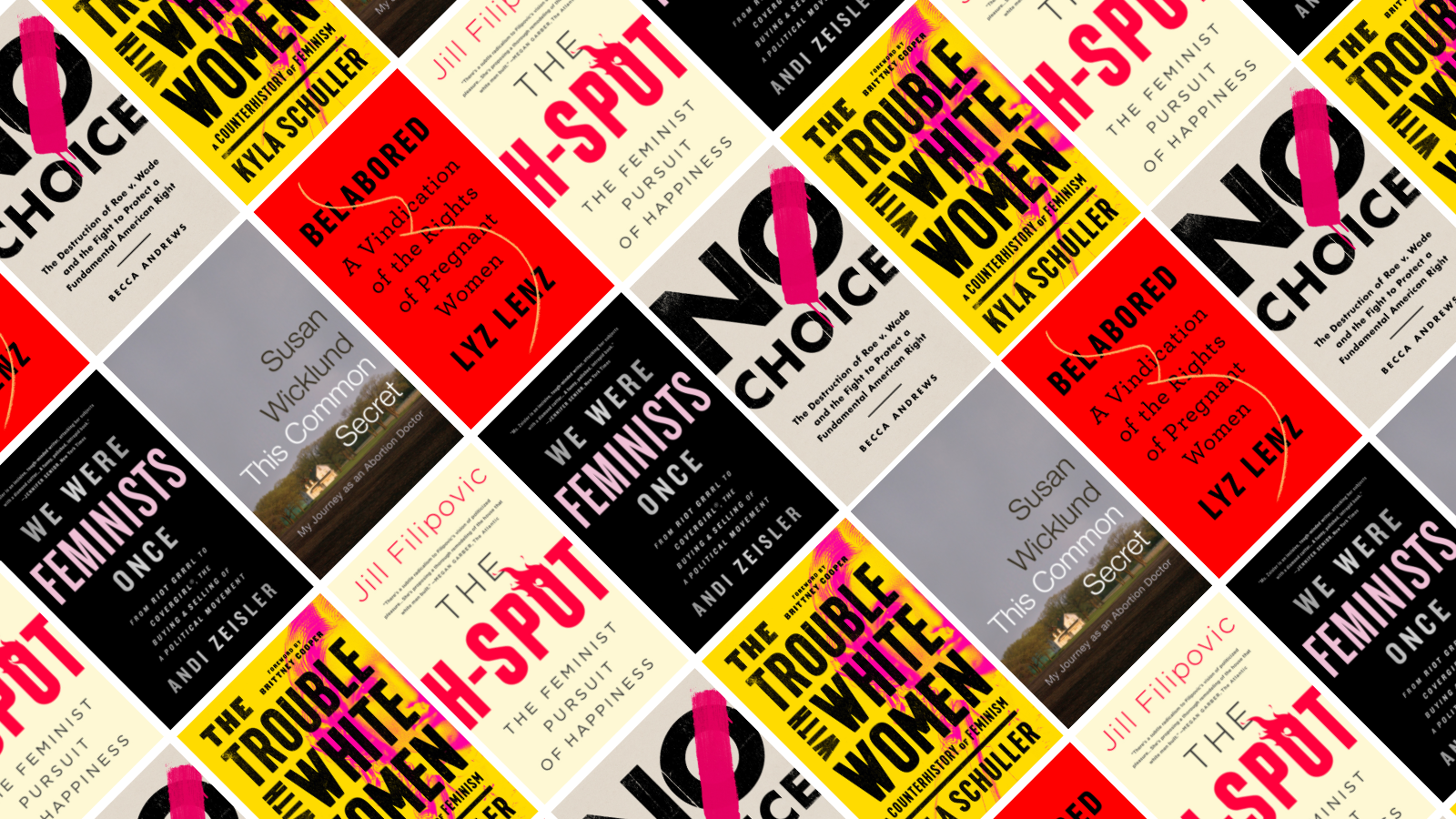
In the wake of continued legislation against women’s and reproductive rights, here is a list of books that are necessary reading.
Reproductive Rites by Sophie Saint Thomas
Sophie Saint Thomas is a writer based in New York City and originally from the US Virgin Islands. This pop history explores the witches—and witch hunts—in the untold story of abortion,
“Not only fascinating and engaging but, in our current post-Roe climate, necessary . . . with wit, humor, and verve that make it an unputdownable read for every feminist.” —Jennifer Wright, author of Madame Restell: The Life, Death, and Resurrection of Old New York’s Most Fabulous, Fearless, and Infamous Abortionist
For millennia, across cultures and continents, both providers and recipients of reproductive healthcare and abortions have been persecuted as witches (whether they actually practiced the craft or not). In this dauntless reassessment of that history, journalist Sophie Saint Thomas follows the tangled threads of witches and reproductive rights through the ages.
Along the way, she maintains an intersectional eye toward the communities most affected by reproductive oppression (including Native Americans, enslaved Black women, and trans people) and offers a scathing look at the hypocrisy of anti-choice crusaders (from eugenicists in the Church of Satan to an astrology-following Republican First Lady). With heart, humor, and deeply researched insights, Reproductive Rites brings new context to the urgency of our ongoing fight.
Vengeance Feminism by Kali Gross
Kali Nicole Gross is the National Endowment for the Humanities Professor of African American Studies at Emory University. This is an alternative model of feminism driven by the legacy of Black women who took justice into their own hands.
So often failed by the state, demeaned by racism and sexism, and denied respectable means of redress, Black women have nevertheless patiently resisted myriad injustices. Yet history shows an alternative path. It involved razors, pistols, hatchets, and blackjacks, and playacting for courts and reporters—whatever it took to beat the system. In a world where Black women are castigated and caricatured for being angry, Vengeance Feminism tells the story of those who leaned into their fury, crafting a different kind of ideology that scratched and stabbed and sometimes even succeeded.
Vengeance Feminism is about the Black women who hit back—not always figuratively, and not necessarily nobly either. Weaving together historical narrative with Black feminist analysis, Gross illuminates the stories of Black women who fought for their dignity on their own terms, from the nineteenth-century “badger thieves” who robbed men on the streets of Philadelphia to victims of intimate partner violence who defended their honor and bodily autonomy with deadly force.
Reckoning with women who lied, robbed, and cheated a racist, misogynistic world, Vengeance Feminism grapples with the volatile power of violence in pursuit of racial and gender justice.
Pushback by Mary Fissell
Mary Fissell is the Mario Molina Professor in the department of the history of medicine at Johns Hopkins University. Pushback details the long history of how restricting access to abortion has been used to curtail women’s advancement.
Attitudes about abortion cycle between long periods of widespread tolerance, to repression, and back again. What accounts for these pendulum swings? From ancient Greece to the modern West, historian of medicine Mary Fissell argues, abortion repression springs up in response to men’s anxieties about women’s increasing independence.
In Pushback, Fissell shows that, across centuries and continents, abortion has always been commonplace, and persecuting women for ending pregnancies has been about controlling their behavior. As Protestantism de-emphasized celibacy, new abortion restrictions policed unmarried women’s sex lives. Nineteenth-century men unsettled by first-wave feminism hoped to establish medicine as a male profession, and so advocated for abortion bans to undercut women’s new roles as physicians. Fissell presents this history through the hidden stories of women committed to reproductive self-determination: holy women of the early Catholic Church whose ability to end pregnancies was considered miraculous, midwives accused of witchcraft or criminal conspiracy, and everyday women whose pregnancies threatened their livelihoods—and their lives.
Pushback is essential reading for understanding the complex history of abortion and making sense of recent crackdowns on reproductive rights.
Ejaculate Responsibly by Gabrielle Stanley Blair
Gabrielle Blair is the founder of DesignMom.com and Alt Summit, the blockbuster annual conference for creatives and creative entrepreneurs who work online, currently in its sixteenth year. Ejaculate Responsibly a compelling and convincing case for placing the responsibility—and burden—of preventing unwanted pregnancies away from women and onto men.
THE NEW YORK TIMES BESTSELLER
In Ejaculate Responsibly, Gabrielle Blair offers a provocative reframing of the abortion issue in post-Roe America.
In a series of 28 brief arguments, Blair deftly makes the case for moving the abortion debate away from controlling and legislating women’s bodies and instead directs the focus on men’s lack of accountability in preventing unwanted pregnancies.
Highly readable, accessible, funny, and unflinching, Blair builds her argument by walking readers through the basics of fertility (men are 50 times more fertile than women), the unfair burden placed on women when it comes to preventing pregnancy (90% of the birth control market is for women), the wrongheaded stigmas around birth control for men (condoms make sex less pleasurable, vasectomies are scary and emasculating), and the counterintuitive reality that men, who are fertile 100% of the time, take little to no responsibility for preventing pregnancy.
The result is a compelling and convincing case for placing the responsibility—and burden—of preventing unwanted pregnancies away from women and onto men.
This Common Secret by Susan Wicklund
Now retired, Susan Wicklund was an abortion doctor practicing in rural areas in the Rocky Mountains. Her memoir talks about her experiences, and the essential right to choose.
In America the reproductive justice debate is reaching a new pitch, with the Supreme Court weighted against women’s choice and state legislatures passing bills to essentially outlaw the practice of abortion. With This Common Secret, Dr. Susan Wicklund chronicles her twenty-year career in the vanguard of the abortion war. Growing up in working-class rural Wisconsin, Susan made the painful decision to have an abortion at a young age. It was not until she became a doctor that she realized how many women shared her ordeal of an unwanted pregnancy. . . and how hidden this common experience remains.
Now, in this raw and riveting true story, Susan and the patients she’s treated share the complex, anguished, and empowering emotions that drove their own choices. Hers is a calling that means sleeping on planes and commuting between clinics in different states — and that requires her to wear a bulletproof vest and to carry a .38 caliber revolver. This Common Secret reveals the truth about the reproductive health clinics that anti-abortion activists mischaracterize as damaging and unsafe. This intimate memoir explains how social stigma and restrictive legislation can isolate women who are facing difficult personal choices — and how we as a nation can, and must, support them.
Belabored by Lyz Lenz
Journalist Lyz Lenz has written a poignant, funny, and enraging book about the experiences of pregnant people, and how we need to trust women.
Lyz Lenz’s writing can “make you cry in one paragraph and snort-laugh in the next” (Chloe Angyal, Vice News). With a blend of wit, snark, and raw intimacy, Belabored shows how religious, historical, and cultural myths about pregnancy have warped the way we treat pregnant people: when our representatives enact laws criminalizing abortion and miscarriage, when doctors prioritize the health of the fetus over the life of the pregnant patient in front of them, when baristas refuse to serve visibly pregnant women caffeine. She also reflects on her own experiences of carrying her two children and seeing how the sacrifices demanded during pregnancy carry over seamlessly into the cult of motherhood, where women are expected to play the narrowly defined roles of “wife” and “mother” rather than be themselves.
Belabored is an urgent call for us to trust women and let them choose what happens to their own bodies, from a writer who “is on a roll” (Bitch Magazine).
The Trouble With White Women by Kyla Schuller
Here’s looking at you, Amy Coney Barrett. This is a historical look at self-serving white feminists, and the Black, Indigenous, Latina, poor, queer, and trans women pushing back against them.
Women including Elizabeth Cady Stanton, Margaret Sanger, and Sheryl Sandberg are commonly celebrated as leaders of feminism. Yet they have fought for the few, not the many. As award-winning scholar Kyla Schuller argues, their white feminist politics dispossess the most marginalized to liberate themselves.
In The Trouble with White Women, Schuller brings to life the two-hundred-year counter history of Black, Indigenous, Latina, poor, queer, and trans women pushing back against white feminists and uniting to dismantle systemic injustice. These feminist heroes such as Frances Harper, Harriet Jacobs, and Pauli Murray have created an anti-racist feminism for all. But we don’t speak their names and we don’t know their legacies. Unaware of these intersectional leaders, feminists have been led down the same dead-end alleys generation after generation, often working within the structures of racism, capitalism, homophobia, and transphobia rather than against them.
Building a more just feminist politics for today requires a reawakening, a return to the movement’s genuine vanguards and visionaries. Their compelling stories, campaigns, and conflicts reveal the true potential of feminist liberation. An Entropy Magazine Best Nonfiction Book of 2020-2021,The Trouble with White Women gives feminists today the tools to fight for the flourishing of all.
No Choice by Becca Andrews
Becca Andrews’ book is a look at the dismantling of Roe v. Wade and what comes next. Preorder your copy today.
An in-depth look at the legacy of Roe v. Wade, and on-the-ground reporting from the front lines of the battle to protect the right to choose
The pieces started to fall in 2019 when a wave of anti-abortion laws went into effect. Georgia, Ohio, Mississippi, Louisiana and Kentucky banned abortion after six weeks of pregnancy, while Missouri banned the procedure at eight weeks. Alabama banned all abortions. The die was cast. And on June 24, 2022, the Supreme Court overturned Roe v. Wade and, abortion immediately became illegal in 22 states.
No Choice begins by shining a light on the eerie ways in which life before Roe will be mirrored in life after. The wealthy and privileged will still have access, low-income people will suffer disproportionately, and pregnancy will be heavily policed. Then, Andrews takes us to the states and communities that have been hardest-hit by the erosion of abortion rights in this country, and tells the stories of those who are most at risk from this devastating reversal of settled law. There is a glimmer of faint hope, though.
As the battle moves to state legislatures around the country, the book profiles the people who are doing groundbreaking, inspiring work to ensure safe, legal access to this fundamental part of health care.
The H-Spot by Jill Filipovic
Jill Filipovic makes the case for putting women’s happiness at the center of the feminist movement– a shift in focus that would impact everything from from reproductive rights to equal pay to welfare spending.
For women, though, pursuing happiness is a complicated endeavor, and if you head out into America and talk to women one-on-one, as Jill Filipovic has done, you’ll see that happiness is indelibly shaped by the constraints of gender, the expectations of feminine sacrifice, and the myriad ways that womanhood itself differs along lines of race, class, location, and identity.
In The H-Spot, Filipovic argues that the main obstacle standing in-between women and happiness is a rigged system. In this world of unfinished feminism, men have long been able to “have it all” because of free female labor, while the bar of achievement for women has only gotten higher. Never before have women at every economic level had to work so much (whether it’s to be an accomplished white-collar employee or just make ends meet). Never before have the standards of feminine perfection been so high. And never before have the requirements for being a “good mother” been so extreme. If our laws and policies made women’s happiness and fulfillment a goal in and of itself, Filipovic contends, many of our country’s most contentious political issues — from reproductive rights to equal pay to welfare spending — would swiftly be resolved.
Filipovic argues that it is more important than ever to prioritize women’s happiness-and that doing so will make men’s lives better, too. Here, she provides an outline for a feminist movement we all need and a blueprint for how policy, laws, and society can deliver on the promise of the pursuit of happiness for all.
We Were Feminists Once by Andi Zeisler
The co-founder of Bitch Media explores the commodification of feminism, and how that impacts issues from abortion to labor to sex.
But what does it mean when social change becomes a brand identity? Feminism’s splashy arrival at the center of today’s media and pop-culture marketplace, after all, hasn’t offered solutions to the movement’s unfinished business. Planned Parenthood is under sustained attack, women are still paid 77 percent — or less — of the man’s dollar, and vicious attacks on women, both on- and offline, are utterly routine.
Andi Zeisler, a founding editor of Bitch Media, draws on more than twenty years’ experience interpreting popular culture in this biting history of how feminism has been co-opted, watered down, and turned into a gyratory media trend. Surveying movies, television, advertising, fashion, and more, Zeisler reveals a media landscape brimming with the language of empowerment, but offering little in the way of transformational change. Witty, fearless, and unflinching, We Were Feminists Once is the story of how we let this happen, and how we can amplify feminism’s real purpose and power.
